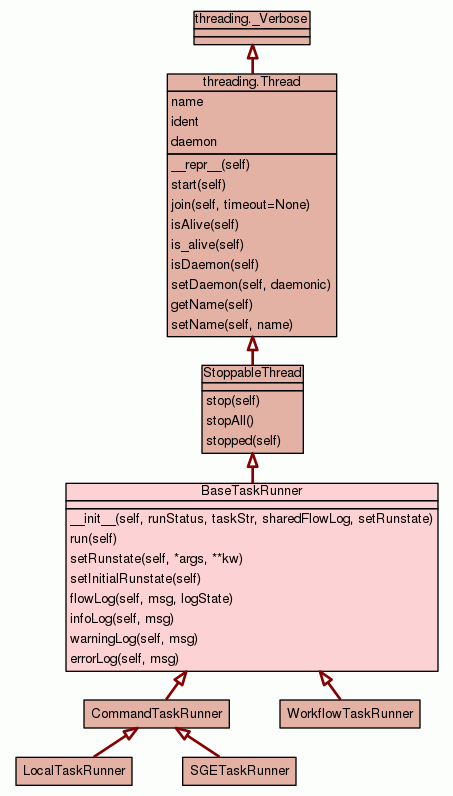
| Home | Trees | Indices | Help |
|---|
|
|

Each individual command-task or sub workflow task is run on its own thread using a class inherited from BaseTaskRunner
|
|||
|
|||
|
|||
|
|||
|
|||
|
|||
|
|||
|
|||
|
|||
|
Inherited from Inherited from Inherited from Inherited from Inherited from |
|||
|
|||
|
Inherited from |
|||
|
|||
|
Inherited from |
|||
|
|||
|
Inherited from Inherited from Inherited from |
|||
|
|||
This constructor should always be called with keyword arguments. Arguments are: *group* should be None; reserved for future extension when a ThreadGroup class is implemented. *target* is the callable object to be invoked by the run() method. Defaults to None, meaning nothing is called. *name* is the thread name. By default, a unique name is constructed of the form "Thread-N" where N is a small decimal number. *args* is the argument tuple for the target invocation. Defaults to (). *kwargs* is a dictionary of keyword arguments for the target invocation. Defaults to {}. If a subclass overrides the constructor, it must make sure to invoke the base class constructor (Thread.__init__()) before doing anything else to the thread.
|
BaseTaskRunner's run() method ensures that we can capture exceptions which might occur in this thread. Do not override this method -- instead define the core logic for the task run operation in '_run()' Note that for sub-workflow tasks we're interpreting raw client python code on this thread, so exceptions are *very likely* here -- this is not a corner case.
|
| Home | Trees | Indices | Help |
|---|
| Generated by Epydoc 3.0.1 on Fri May 19 16:44:20 2017 | http://epydoc.sourceforge.net |